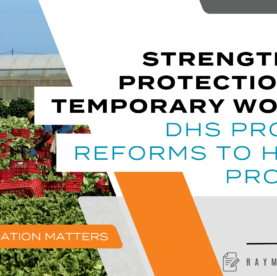Tennis Star Novak Djokovic Refused Entry to Australia Over Vaccine Exemption; Faces Uncertain Future Following Legal Victory
Serbian tennis star Novak Djokovic has had an eventful couple of weeks, to say the least. Djokovic went from receiving a last-minute medical exemption to play in the Australian Open singles championship to having his visa abruptly cancelled by the Australian government. Following a period of detention and a successful legal challenge, Djokovic faces an uncertain future in Australia. This international incident underscores the importance of immigration considerations for international athletes during the COVID-19 pandemic.
Who is Novak Djokovic?
One of the most controversial and successful figures in professional tennis, Novak Djokovic, is a Serbian professional tennis player who is currently ranked number one in the world by the Association of Tennis Professionals. Djokovic is tied with Rafael Nadal and Roger Federer for the most Grand Slam men’s singles titles in history, with 20 each. Djokovic, a 34-year-old three-time Australian Open champion, is fighting to break that record. He could do just that in the 2022 Australian Open, scheduled for Jan. 17 through Jan. 30.
Djokovic Receives Last-Minute Medical Exemption
On Jan. 4, Djokovic tweeted that he had received a medical exemption to participate in the Australian Open without a COVID-19 vaccination. The tweet ended weeks of speculation about whether Djokovic would be permitted to do so. Djokovic, an outspoken vaccine skeptic, has previously refused to comment on whether he has been vaccinated.
The State of Victoria, where the Australian Open takes place, enforces strict rules on COVID-19 safety and vaccination, including a requirement that all players in the sporting event be vaccinated against COVID-19.
In December, the Victorian Government and Tennis Australia indicated they would form an independent panel to review any requests for medical exemptions. According to Australia’s ABC network, the decision to grant Djokovic’s medical exemption took place after a “rigorous review process involving two separate independent panels of medical experts.”
With his medical exemption, Djokovic boarded a flight to Australia, ready to compete. However, his hopes of competition were dashed when the Australian government took issue with his medical exemption and refused him entry to the country.
Australian Government Cancels Djokovic’s Visa
Following his arrival in Australia, Djokovic was informed by Australian officials that his visa was cancelled after a 10-hour standoff with government officials at the Melbourne airport. Djokovic was held in a room overnight as government officials questioned the validity of his visa and the medical evidence supporting his medical exemption from the COVID-19 vaccine.
According to a statement by Australian Border Force, Australian officials will continue to “ensure that those who arrive at our border comply with our laws and entry requirements. The ABF can confirm that Mr. Djokovic failed to provide appropriate evidence to meet the entry requirements to Australia, and his visa has been subsequently canceled.”
It is now understood that Djokovic relied on a previous COVID-19 infection to justify his medical exemption, but the government of Australia refused to recognize the presence of COVID-19 antibodies as justification for an exemption.
The controversy even garnered the attention of Australian Prime Minister Scott Morrison, who tweeted, “Mr. Djokovic’s visa has been cancelled. Rules are rules, especially when it comes to our borders. No one is above these rules. Our strong border policies have been critical to Australia having one of the lowest death rates in the world from COVID, we are continuing to be vigilant.”
Djokovic refused to leave Australia, instead filing a legal challenge to the ruling.
Djokovic Successfully Challenges Visa Cancellation
Following the standoff in the Melbourne Airport, Djokovic pled his case in a snap hearing before Judge Anthony Kelly, and a full hearing was scheduled for Monday, Jan 10, 2022. Pending that hearing, Djokovic was permitted to remain in Australia, and was transferred to Melbourne’s Park Hotel, a detention facility that holds refugees and asylum seekers.
At the hearing, Judge Kelly ruled in Djokovic’s favor, finding the tennis star had been treated unfairly since his arrival to the country. Government lawyers highlighted the ongoing public health crisis of the COVID-19 pandemic and emphasized that no one is guaranteed entry to the country, but the judge was sympathetic with Djokovic’s case and granted his release from detention.
What is Next for Novak Djokovic?
Djokovic’s legal victory does not necessarily ensure he will be permitted to compete in the Australian Open, however, as the immigration minister retains the right to cancel Djokovic’s visa. For now, it remains unclear what the Australian government will do next.
Djokovic’s case is at the intersection of immigration law, public health law, sporting regulations, as well as state and federal governments. Following his legal victory, Djokovic will continue to push for the opportunity to compete at the Australian Open, set to start next Monday.
To learn more about this blog post, or if you have any other immigration concerns, please feel free to contact me at rglahoud@norris-law.com or (484) 544-0022.




